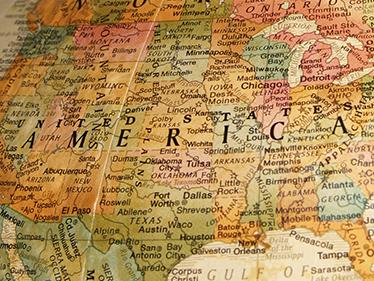Popular Culture and Popular Conceptions of Rurality
By Damon Alimouri
In Davis L. Brown and Kai A. Schafft’s essay, “Rural People and Communities in the 21st Century,” the authors illustrate that North Americans and Europeans broadly possess anti-urban and pro-rural sentiments. Intuitively, upon reading this, I felt that it must be incorrect, or at least the statement, “North Americans and Europeans hold favorable opinions about rural areas,” incompletely describes general sentiments concerning rural areas.
My view regarding this statement stems from popular culture’s depiction of rural areas, or at least what I have gathered from its depiction. I have noticed a consistent trend in Hollywood, wherein horror movie milieus, for instance, are rural areas (e.g., The Texas Chainsaw Massacre, Children of the Corn, The Village, Deliverance, Misery, etc.). From my own observations, it seems that a rural milieu is almost essential for a horror movie to have its desired effect of instilling fear in the audience.
I have also noticed that in popular culture rural inhabitants are often depicted as philistine, politically backward, and generally uneducated (e.g. The Beverly Hillbillies, Cletus Delroy Spuckler from The Simpsons, Duck Dynasty, etc.). Anthony Hopkins’s infamous monologue, as Hannibal Lecter in The Silence of the Lambs, perfectly encapsulates this attitude in its most vitriolic form. The sophisticated and intellectual Lecter lashes out at Jodie Foster’s character, Clarice Starling, calling her a “rube,” a country bumpkin. The monologue is worth quoting:
“You know what you look like to me, with your good bag and your cheap shoes? You look like a rube. A well scrubbed, hustling rube with a little taste. Good nutrition’s given you some length of bone, but you’re not more than one generation from poor white trash, are you, Agent Starling? And that accent you’ve tried so desperately to shed: pure West Virginia. What is your father, dear? Is he a coal miner? Does he stink of the lamp? You know how quickly the boys found you… all those tedious sticky fumblings in the back seats of cars… while you could only dream of getting out… getting anywhere… getting all the way to the FBI.”
Obviously, my observations do not necessarily conflict with Brown and Schafft’s discoveries. They only conflict with the ostensible fact if we presuppose that popular culture’s depiction of rural areas is a direct reflection of popular sentiment. This is certainly a possibility; I think it is fact. However, it is common knowledge nowadays that popular culture is not only a reflection of popular sentiment, but that also it is a manufacturer of ideology.
It seems to me, as Brown and Schafft articulated by referring to the attitudes of “literary giants,” popular culture plays a large role in shaping general conceptions of rural areas. The engineers behind popular culture seek, of course, to make a profit as well as to inculcate values and modes of thinking within the populace.
I am willing to concede, for the sake of discussion, that it is true that the majority of Americans hold pro-rural beliefs, yet I ask: why have these beliefs not been tarnished by the pervasive negative portrayal of rural areas in popular culture? Could this be explained by the fact that popular culture more emphatically depicts rural areas under a positive light? Western heroes, like Clint Eastwood and John Wayne’s various characters (e.g. the man with no name, Josey Wales, Rooster Cogburn, etc.), are emblematic of Hollywood’s powerful infatuation with rural frontiersman. Or could this be explained as Americans simultaneously holding pro and anti-rural beliefs?
I do not think that this is a matter of one popular depiction negating another. I think this is a matter of different depictions producing different sentiments regarding rural areas, which, despite their difference, work in unison for one ideological end. Americans hold simultaneously pro and anti-rural beliefs.
On one hand, many films, television series, and popular songs produce a fondness for the rural because of the rural area’s presentation as technologically and legally untouched. The rural represents a divergence from the daily technological and bureaucratic drudgeries of industrialized, urban life. This depiction serves to enable the average blue-collar and white-collar urbanite to vicariously experience the rugged frontiersman’s apparent freedom and peace.
On the other hand, horror films and the depiction of the “idiocy” of rural life serve the purpose of reigning in this vicarious sense of freedom, to make it covetable yet not so covetable. Horror films and others like them propagate that the countryside’s lack of institutional and technological development makes for a terrifying landscape. It is a place for all sorts of crimes to go unnoticed, as the state and communication with urban centers are almost non-existent. So, in a sense these depictions create a sense of a need for law and order despite the freedom glorified in other forms of popular culture.
In brief, this issue is not cut and dry. It is impossible to say that Americans and Europeans generally hold either pro or anti-rural views. The methods through which the dominant means of education and communication inculcate ideology are far too complex to summarize their effect in one blanket frame.
Damon Alimouri is a J.D. candidate at the UC Davis School of Law.
(article adapted from Legal Ruralism)










